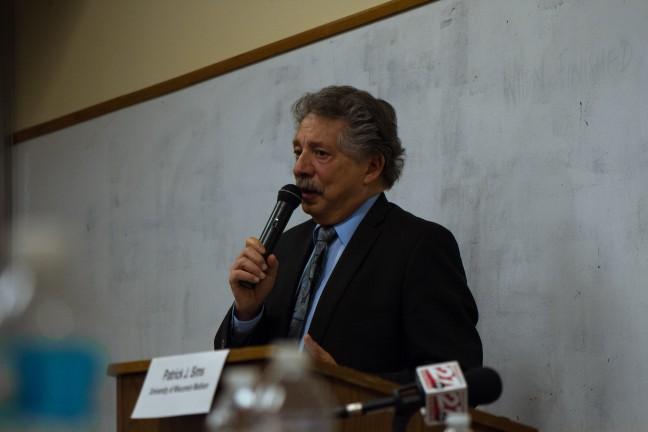Mayor Paul Soglin presented arguments in support of redeveloping Judge Doyle Square on Wednesday, Sept. 23, highlighting future job creation.
The development would see the relocation of biotechnology firm Exact Sciences to the square, along with a hotel and parking improvements. The development is projected to cost the city $46.7 million and final approval of the project will be voted on at the City Council meeting on Tuesday, Sept. 29.
Years in the making, nearing completion, Judge Doyle Square project set back two weeks
Soglin said Exact Sciences, already based in Madison, will guarantee the creation of at least 400 jobs within the new building by 2019.
He said the hotel will provide at least 216 rooms with the guarantee that should construction not begin by May 2017, the city may turn to another developer and the city will regain the land.
The total public investment will account for 25 percent of the $180 million cost of development, according to data from Soglin’s office.
The minimum salary for the jobs created through the square is $28,000, with some of the jobs reaching up to $145,000, according to Soglin. He also touted the benefits that employees would receive from Exact Sciences, including dental and matched 401Ks.
“These are great, sustainable, more than living wage jobs … from a company with an excellent history of hiring a diverse workforce,” Soglin said.
The development is being funded through a tax increment financing fund which may only be used to fund economic development or infrastructure projects.
Soglin frequently addressed criticism that funding used for the development could be better spent elsewhere, saying this was not the case.
“It is incredibly deceptive to leave the public concluding that if we did not do this project, the funds would be available for these other commitments,” Soglin said.
Soglin said he expects the vote to be close but favorable for the development plan. He denied answering hypothetical questions on what he would do should the project not be adopted, saying he refuses to entertain that possibility.
He said the main opposition to the proposal was from those who think that the benefits of the project would not be shared by the entire community. He referred to the benefits of the project as a “rising tide which would lift up all boats.”
“What is unusual about this project is the breadth, in terms of the geographic and demographics that benefit,” Soglin said.












